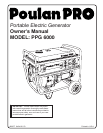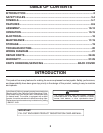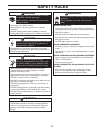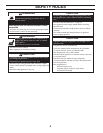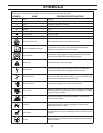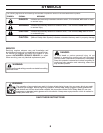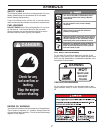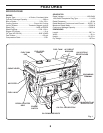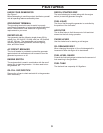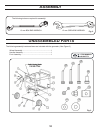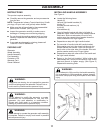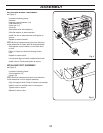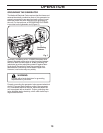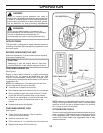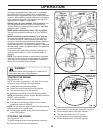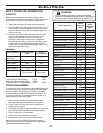
9
KNOW YOUR GENERATOR
See Figure 1.
Before attempting to use this product, familiarize yourself
with all operating features and safety rules.
GROUNDING TERMINAL
The grounding terminal is used to assist in properly
grounding the generator to help protect against electrical
shock. Consult with a local electrician for grounding
requirements in your area.
RECEPTACLES
Your generator has the following single phase, 60 Hz
outlets: four 120 Volt AC, 20 Amp, and one 120 Volt/240
Volt AC, 30 Amp. The receptacles can be used for
operating appropriate appliances, electrical lighting,
tools, and motor loads.
AC CIRCUIT BREAKER
The circuit breaker is provided to protect the generator
against electrical overload and can be used to turn the
generator’s power on or off.
ENGINE SWITCH
The engine switch is used in combination with the recoil
starter grip to start the generator. It is also used to turn
the generator off.
OIL FILL CAP/DIPSTICK
Remove the oil cap to check and add oil to the generator
when necessary.
FEATURES
RECOIL STARTER GRIP
The recoil starter grip is used (along with the engine
switch) to start the generator’s engine.
FUEL VALVE
The flow of fuel through the generator is controlled by
the position of the fuel valve.
AIR FILTER
The air filter helps to limit the amount of dirt and dust
drawn into the unit during operation.
CHOKE LEVER
Use the choke lever for starting a cold engine.
OIL DRAINAGE BOLT
When changing the engine oil, the oil drainage bolt is
loosened to allow old engine oil to be drained.
FUEL LEVEL GAUGE
Consult the fuel level gauge to determine the amount of
fuel remaining in the generator.
FUEL TANK
The fuel tank has a capacity of 6.6 gallons.



